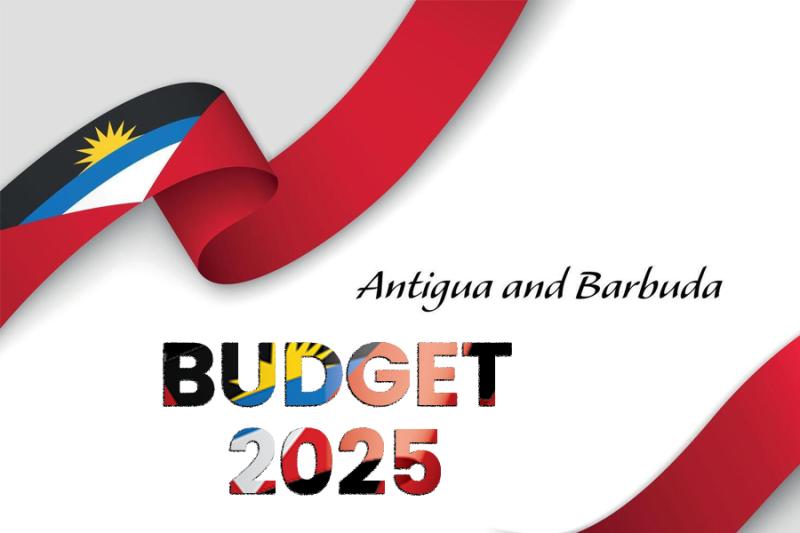
HIGHLIGHTS OF THE ANTIGUA & BARBUDA 2024 BUDGET STATEMENT
As Antigua and Barbuda approaches the 2025 Budget Statement, we at The UWI Five Islands Campus present the highlights of the 2024 Budget Statement as part of the context for the 2025 budget statement.
Revenue Overview
Antigua and Barbuda's 2024 Budget projected total revenue at $1.2 billion EC (18.7% of GDP), up from 2023's $971.4 million, with tax revenue contributing the largest share. Here's the 2024 projected breakdown:
- Tax Revenue (86% of total revenue):
- Direct Taxes: $156.5 million (13.0% of total revenue)
- Corporation Tax: $108.3 million (9.0%)
- Property Tax: $39.6 million (3.3%)
- Indirect Taxes: $853.1 million (71.0%)
- ABST (Antigua and Barbuda Sales Tax): $413.6 million (35.0%)
- Revenue Recovery Charge: $109.9 million (9.2%)
- Import Duties: $146.4 million (12.2%)
- Direct Taxes: $156.5 million (13.0% of total revenue)
- Non-Tax Revenue (14% of total revenue):
- Citizenship by Investment Programme (CIP): $130 million (10.8%)
Expenditure Overview
The 2024 Budget estimates total expenditure at $1.3 billion EC (20.3% of GDP), up from $1.1 billion in 2023 distributed as follows:
- Recurrent Expenditure (87% of total expenditure):
- Wages and Salaries: $461.1 million (35.5%)
- Transfers, including pensions and social security contributions: $295.6 million (22.7%)
- Interest Payments: $131.9 million (10.1%)
- Goods and Services: $210.6 million (16.2%)
- Capital Expenditure (13% of total expenditure):
- Infrastructure Development: $130.6 million (10.1%), including:
- Road rehabilitation: $82.8 million
- Building repairs: $33.5 million
- Infrastructure Development: $130.6 million (10.1%), including:
Major Policy Measures
The 2024 Budget outlined several fiscal policy measures to enhance revenue collection and manage expenditures effectively:
- Revenue-Generating Measures:
- Increase in ABST rate from 15% to 17%, with the tourism sector's rate increasing from 14% to 17%.
- Broadening the ABST tax base to include online streaming services.
- Excise tax introduction: 10% on alcohol, tobacco, and cannabis products.
- Increase in the Money Transfer Levy from 2% to 5%.
- Property tax adjustments for properties valued at $3 million or more.
- Expenditure Management:
- Targeted infrastructure spending, focusing on roads and public buildings.
- Salary increases for public servants, completing a 14% increase over three years.
- Strategic Investments:
- Expansion of renewable energy projects, including a $100 million solar and LNG facility.
- $80 million expansion of UWI Five Islands Campus to bolster education.
- Social Support Measures:
- Maintaining subsidies on public transport and LPG gas, costing over $16 million.
- Increases in pensions for retired public servants.
Prof. C. Justin Robinson
Pro-Vice Chancellor and Principal UWI Five Islands
End
About The University of the West Indies
The UWI has been and continues to be a pivotal force in every aspect of Caribbean development, residing at the centre of all efforts to improve the well-being of people across the region for over 75 years.
From a university college of London in Jamaica with 33 medical students in 1948, The UWI is today an internationally respected, global university with nearly 50,000 students and five campuses: Mona in Jamaica, St. Augustine in Trinidad and Tobago, Cave Hill in Barbados, Five Islands in Antigua and Barbuda and its Global Campus, and global centres in partnership with universities in North America, Latin America, Asia, Africa, and Europe.
The UWI offers over 1000 certificate, diploma, undergraduate and postgraduate degree options in Culture, Creative and Performing Arts, Food and Agriculture, Engineering, Humanities and Education, Law, Medical Sciences, Science and Technology, Social Sciences, and Sport. As the Caribbean’s leading university, it possesses the largest pool of Caribbean intellect and expertise committed to confronting the critical issues of our region and the wider world.
The UWI has been consistently ranked among the best in the world by the most reputable ranking agency, Times Higher Education (THE) . Since The UWI’s 2018 debut in THE’s rankings, it has performed well in multiple schemes—among them including World University Rankings, Golden Age University Rankings (between 50 and 80 years old), Latin America Rankings, and the Impact Rankings for its response to the world’s biggest concerns, outlined in the 17 United Nations Sustainable Development Goals (SDGs), including Good Health and Well-being; Gender Equality and Climate Action.
Learn more at www.uwi.edu






